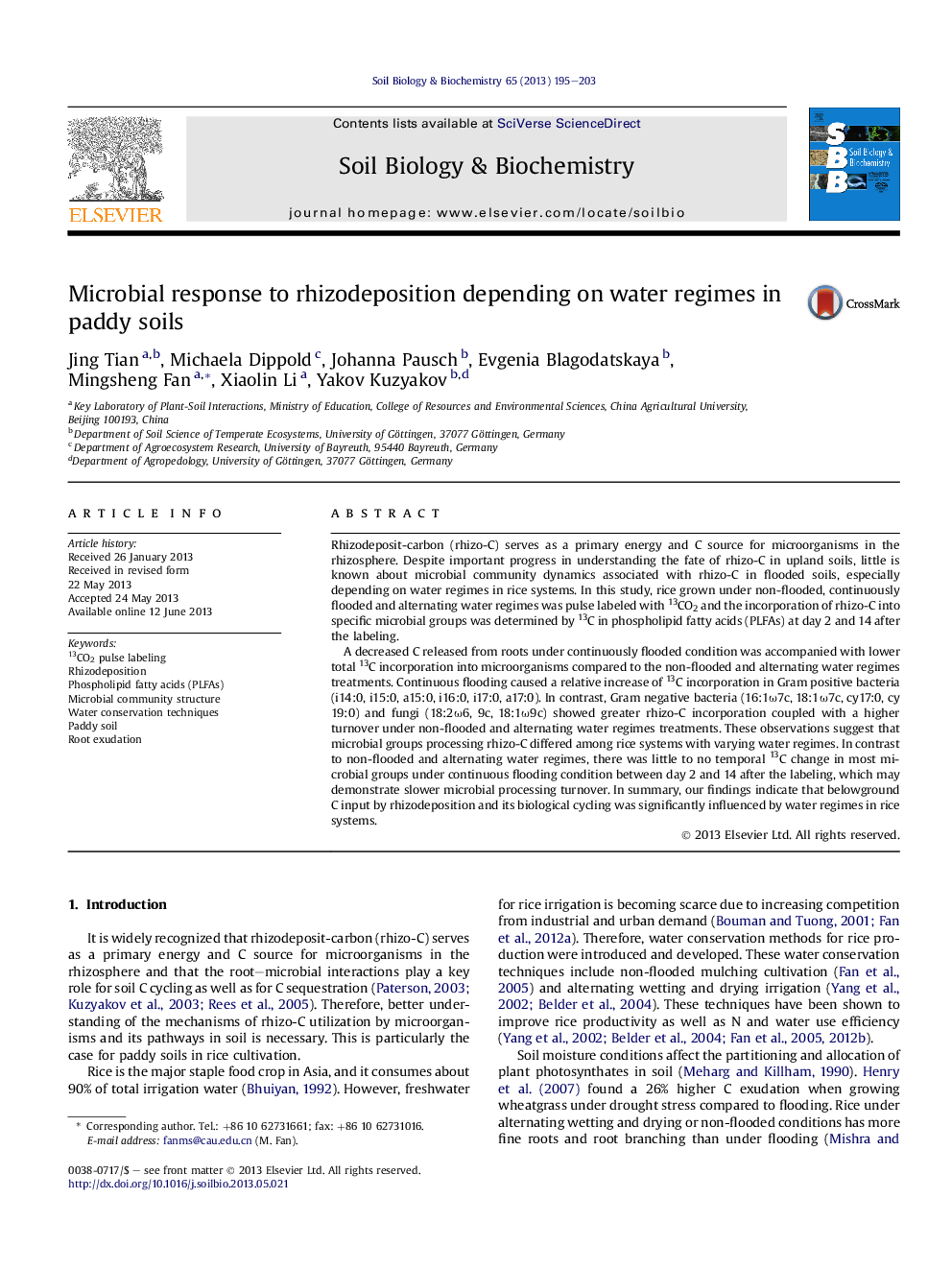| Article ID | Journal | Published Year | Pages | File Type |
|---|---|---|---|---|
| 8365214 | Soil Biology and Biochemistry | 2013 | 9 Pages |
Abstract
A decreased C released from roots under continuously flooded condition was accompanied with lower total 13C incorporation into microorganisms compared to the non-flooded and alternating water regimes treatments. Continuous flooding caused a relative increase of 13C incorporation in Gram positive bacteria (i14:0, i15:0, a15:0, i16:0, i17:0, a17:0). In contrast, Gram negative bacteria (16:1Ï7c, 18:1Ï7c, cy17:0, cy 19:0) and fungi (18:2Ï6, 9c, 18:1Ï9c) showed greater rhizo-C incorporation coupled with a higher turnover under non-flooded and alternating water regimes treatments. These observations suggest that microbial groups processing rhizo-C differed among rice systems with varying water regimes. In contrast to non-flooded and alternating water regimes, there was little to no temporal 13C change in most microbial groups under continuous flooding condition between day 2 and 14 after the labeling, which may demonstrate slower microbial processing turnover. In summary, our findings indicate that belowground C input by rhizodeposition and its biological cycling was significantly influenced by water regimes in rice systems.
Keywords
Related Topics
Life Sciences
Agricultural and Biological Sciences
Soil Science
Authors
Jing Tian, Michaela Dippold, Johanna Pausch, Evgenia Blagodatskaya, Mingsheng Fan, Xiaolin Li, Yakov Kuzyakov,
